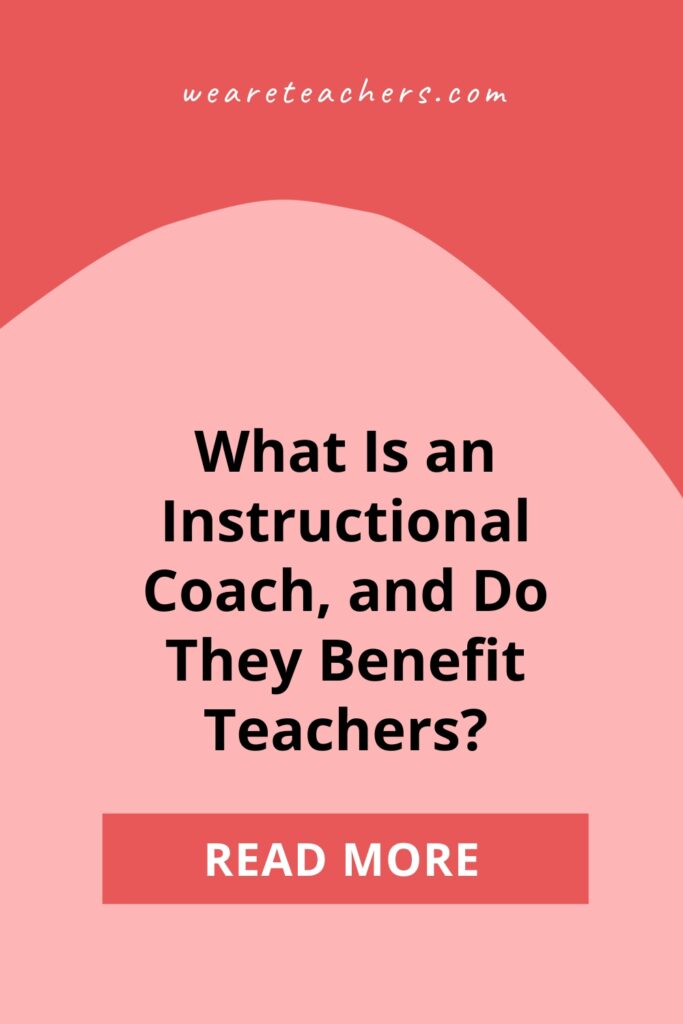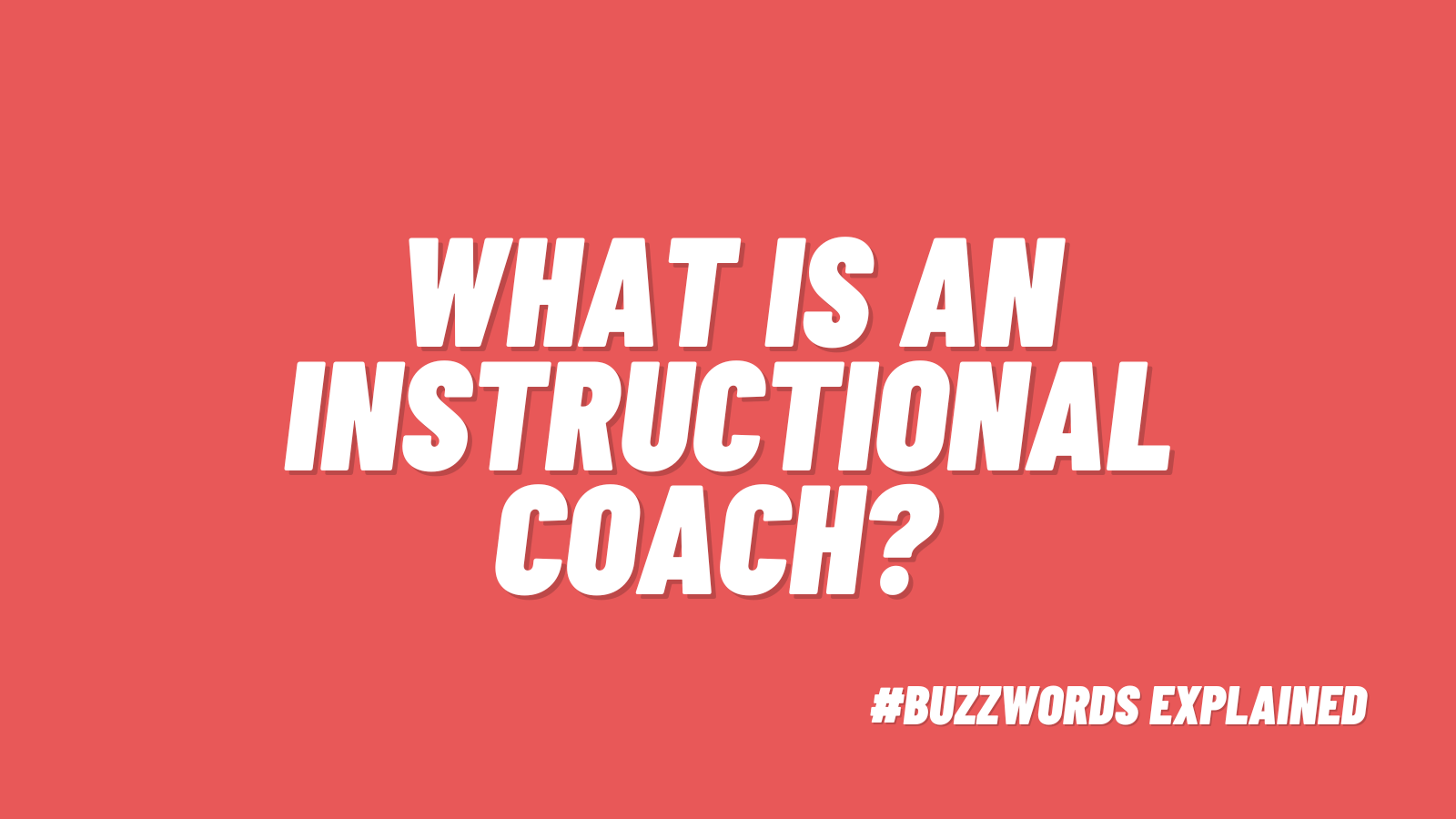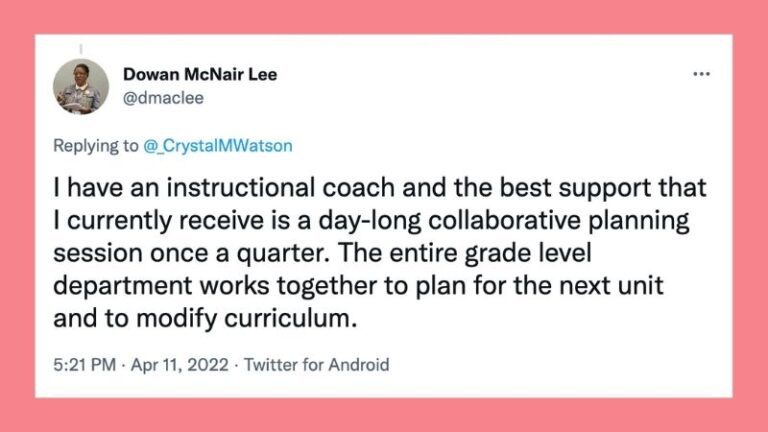Instructional coaches, sometimes called instructional coordinators or instructional specialists, are school leaders who train and coach teachers in one school or across multiple schools. These administrators are becoming increasingly common. According to NCES data, 65.9% of schools have some sort of instructional coordinator or coach. Most (41.3%) focused on reading, while 36.9% are general coaches.
According to a SLIDE report, between 2009–2010 and 2018–2019, the number of instructional coaches increased by 33.7%. During COVID, this decreased slightly, but if you teach for any amount of time, chances are you’ll have a coach at some point.
What is an instructional coach?
An instructional coach is like a coach for anything else—sports, life, dating—but for teaching. An instructional coach’s primary role is to help teachers get better at what they do, and they use coaching techniques to accomplish that. Instructional coaches develop personalized professional development and job coaching for teachers. It’s their job to know the standards and curriculum and best practices.
The goal of instructional coaching is to improve a teacher’s practice and, as a result, improve student achievement. Of course, this looks different for every teacher.
For example, if you’re a teacher working with an instructional coach, the coach should help you set goals around your practice. Maybe you want to improve your use of data in the classroom, or maybe you want to implement a specific practice (like PBIS or interactive read-aloud). The coach will provide observation and feedback around that goal. Or if your goal is to improve classroom management, the coach might come and observe a particularly tricky time of day to help you problem-solve around how to make changes to make your classroom run smoother.
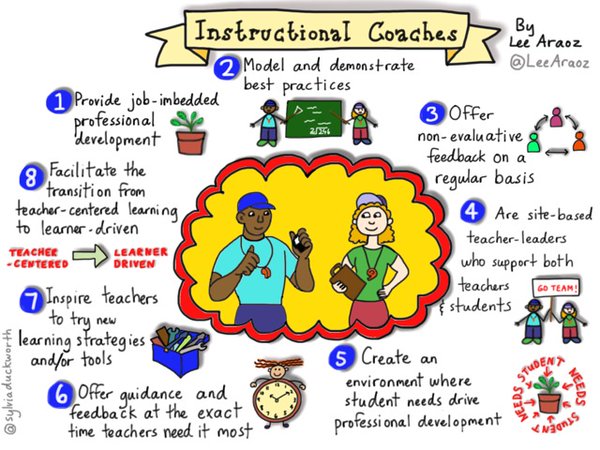
Some schools have multiple coaches, while others share a coach among multiple buildings. A school may have coaches for each grade level, or a school may have coaches that support various teachers. A coach may specialize in a content area—like reading or math—or in a topic, like technology. Coaches may also have other duties, such as interventionists or staff professional-development leaders.
What do instructional coaches do?
Effective coaches will build relationships with teachers and work through mutually respectful relationships to improve teaching and learning. There are different ways to approach coaching, and the model will depend on the school. Typically, coaches use a coaching cycle to move through goal setting, learning, observation and data collection, and reflection.
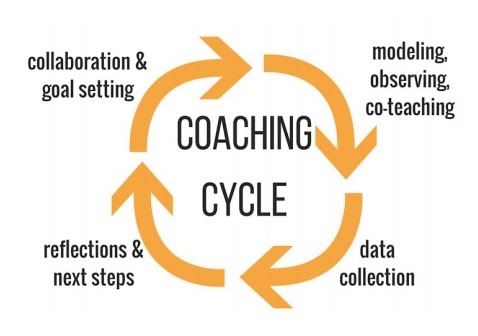
Instructional coaching should always focus on improving teaching and learning and on the steps that a teacher can take to improve what they do in the classroom. The idea is that, over time, little changes will lead to big changes in teacher practice and student achievement.
An instructional coach’s day will look different depending on what’s going on at school, the meetings scheduled, and observations that need to happen. Most of a coach’s time will be spent working directly with teachers and include the following:
- Planning and leading whole-school professional development
- Communicating changes in state policy to teachers
- Modeling classroom lessons
- Building strong relationships with teachers and administrators
- Staying on top of new resources and strategies for instruction, assessment, classroom management, and student engagement
- Testing and promoting the latest tools and technology for teaching
- Supporting teachers in analyzing and using data to improve instruction
- Helping teachers plan and differentiate lessons
- Informally observing lessons and providing feedback
- Helping develop systems and structures to improve teacher practice school-wide
Who can become an instructional coach?
Coaches are typically former teachers, which makes sense because coaching should be a relationship first, and coaches who were teachers can empathize and help problem-solve in ways that non-teachers just can’t. Most instructional coaches (58%) have two to four years of teaching experience, some (12%) have less, and 30% have more than five years experience.
Typically, instructional coaches have a master’s degree in teaching and learning, educational leadership, curriculum development, or their area of expertise, like reading or math.
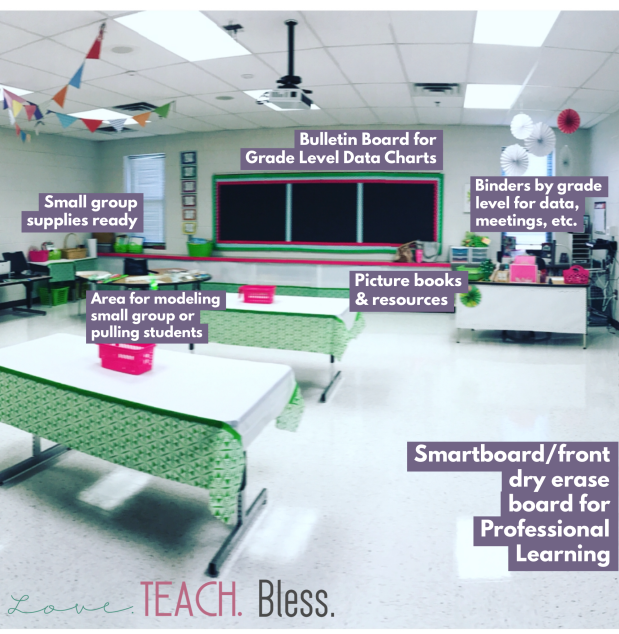
Effective coaching takes a certain skill set. Instructional coaches:
- Have high emotional intelligence and are able to manage conflict
- Build strong relationships with teachers
- Have a record of improving student achievement and working with students who have special needs
- Demonstrate leadership qualities
- Have strong interpersonal skills
- Are able to give and receive feedback
- Are able to analyze and use student data to improve instruction
Read more: Things the Best Instructional Coaches Do, According to Teachers
What is an instructional coach’s salary?
According to ZipRecruiter, the average salary for an instructional coach ranges from $45,000 to $64,000 per year, with an average salary of $55,383. The salary depends on where you’re coaching and factors like your education and how many years of teaching or coaching experience you have.
Read more: Why Even the Best Teachers Need Instructional Coaches
What is the job outlook for instructional coaches?
According to the Bureau of Labor Statistics, instructional coaching jobs are expected to increase 2% by 2032, which is average for all occupations. Instructional coaching jobs may, however, be influenced by state and local budget decisions.
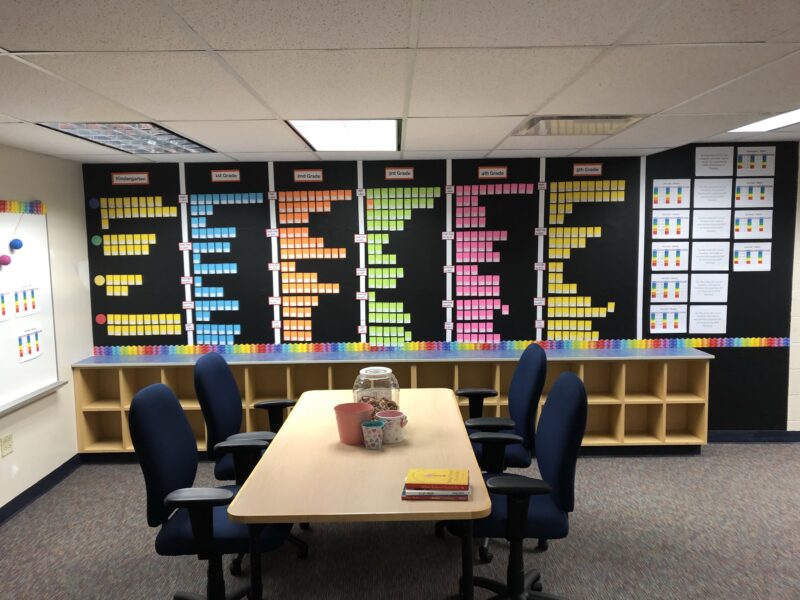
What are the pros and cons of instructional coaching?
Instructional coaching can be engaging and a way to move out of the classroom and into school leadership without going into administration.
Pros:
- You get to work with teachers on teaching.
- Improve student learning and achievement.
- It’s a collaborative job.
- You’ll build relationships with teachers.
- You’ll build your expertise.
Cons:
- You may have to work with teachers who do not want to be coached.
- You may get frustrated if people don’t go along with your recommendations.
- You may be part of the school leadership team, which means more roles and responsibilities.
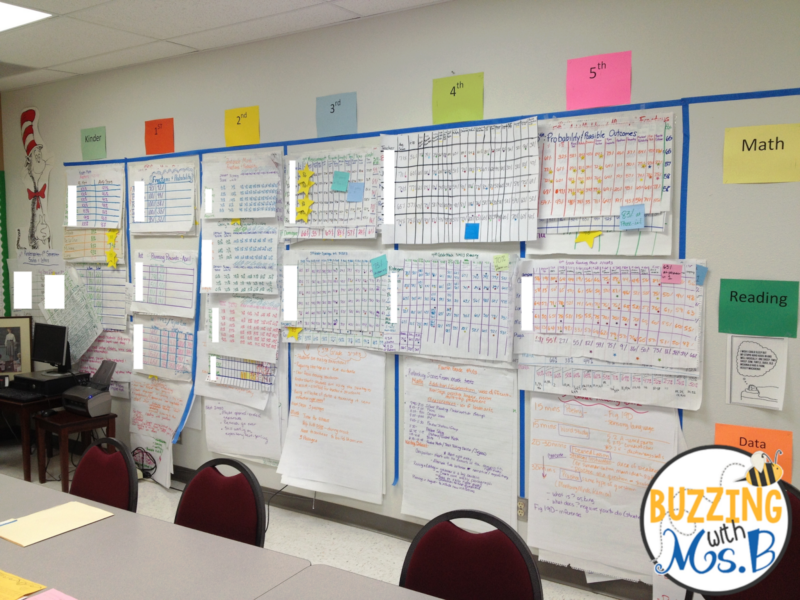
Does instructional coaching work?
The idea behind coaching is that teachers learn best, and the most, by working with a coach who can personalize the learning to their needs, and who can guide them to greater success. When teachers set their own goals and work on developing skills that are important to them, they will make the greatest change. We can say for certain that sitting through an all-day in-service has not made any teacher really change their practice, but does coaching work?
Lots of research has been conducted on coaching and it’s pretty conclusive that, when done well, coaching works to improve teacher practice and increase student achievement. A meta-analysis, or review of multiple studies, found that teacher coaching has had an overall positive effect on teaching. And teacher coaching potentially outperformed other methods of teacher development. The tricky part is that coaching has to be implemented well to have the greatest impact. Often, coaches are pulled in many different directions, or are not implementing the research-based coaching strategies that produce results.
So, the short of it is, yes, coaching works. But there are lots of caveats and aspects of how instructional coaches work that produce that positive impact.
Interested in being an instructional coach and want advice? Already an instructional coach and have advice? Come share in the We Are Teachers HELPLINE group on Facebook
Plus, for more articles like this, be sure to subscribe to our newsletters.
